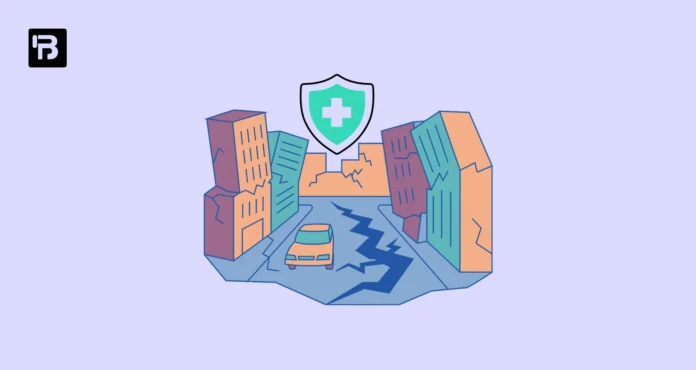Due to the large and unpredictable nature of earthquakes and the potential for extensive destruction they might wreak, earthquake insurance is extremely crucial. This specialized insurance offers financial security against losses brought on by earthquakes and other occurrences.
Importance of Earthquake Insurance
Here are some reasons why Earthquake Insurance is important.
1. Seismic Risks
Earthquakes are natural disasters that can strike suddenly and severely damage structures, infrastructure, and private property. Individuals and companies can better prepare for the financial effects of these catastrophes by purchasing earthquake insurance.
2. Property protection
Buildings may sustain structural damage, foundation problems, or even total collapse as a result of earthquakes. The cost of repairing and rebuilding destroyed structures is covered by earthquake insurance, ensuring homeowners’ financial recovery.
3. Exclusion from Standard Policies
Damage caused by earthquakes is often not covered by standard homeowner’s insurance policies. To close this coverage gap and offer total protection, earthquake insurance is required.
4. Reducing Financial Loss
Without earthquake insurance, earthquake-affected people and businesses may incur high out-of-pocket costs for repairs and reconstruction. These financial damages are lessened with the use of earthquake insurance.
5. Unusual Risks
Earthquakes can result in additional dangers including landslides, tsunamis, and aftershocks, which intensify the entire effect. A variety of associated hazards are covered by earthquake insurance, protecting policyholders against a range of potential repercussions.
6. Community Resilience
Earthquakes can upend entire towns and harm public services and infrastructure. Earthquake insurance helps communities recover financially so they can rebuild and reestablish vital services.
7. Government Assistance Restrictions
Federal disaster assistance is occasionally offered after a significant earthquake, although it is frequently scarce and subject to qualifications. A more dependable and specialized form of financial aid is offered by earthquake insurance.
8. No Repayment Required
Repayment is not necessary for earthquake insurance payouts, in contrast to loans or grants given by government organizations. By doing this, it is made sure that policyholders won’t accrue more debt as the economy recovers.
9. Peace of Mind
Knowing that homes and property owners are financially prepared for earthquakes’ unpredictable occurrence gives homeowners and property owners peace of mind.
10. Growing Urbanisation
As cities get bigger and more people live there, earthquakes’ potential effects on built environments are more important. In areas with a high population density, earthquake insurance becomes more important.
11. Mandatory Requirements
Mortgage lenders may stipulate in their loan agreements that homeowners obtain earthquake insurance in areas with high seismic activity. This stipulation serves to safeguard the lender’s equity in the property.
12. Long-Term Financial Stability
Post-earthquake recovery can be a difficult and drawn-out process. Earthquake insurance ensures that people and businesses can continue to operate profitably as they rebuild and recover.
Conclusion
Considering that earthquakes have the potential to cause catastrophic damage, getting earthquake insurance is a proactive move towards ensuring one’s financial future. It offers both immediate relief and long-term financial security by giving people, families, and businesses the tools to recover and rebuild following an earthquake-related calamity.

